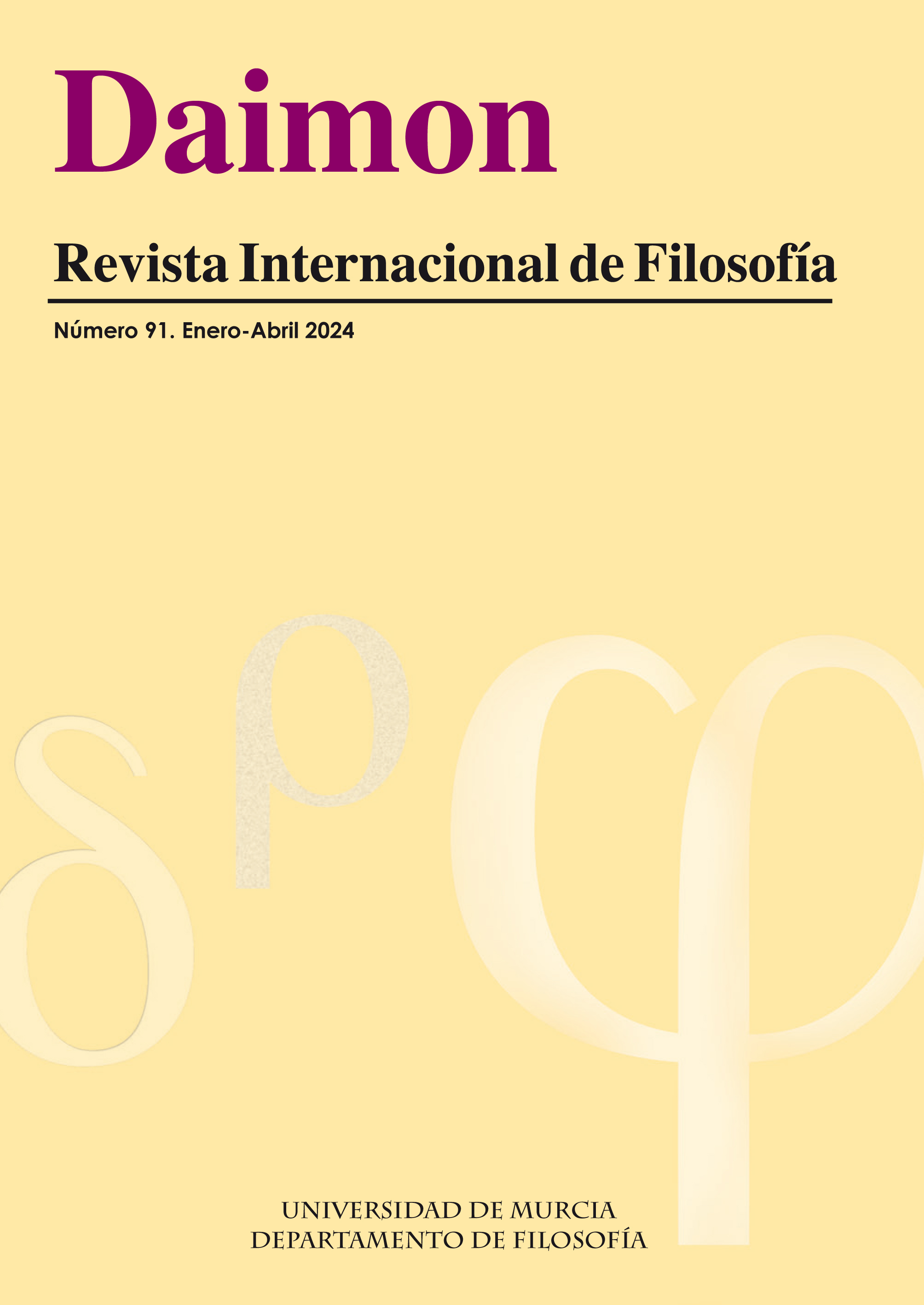Deducción y conocimiento nuevo: una propuesta científicamente informada para enfrentar la paradoja de la inferencia
Agencias de apoyo
- Este artículo es producto derivado de la investigación posdoctoral realizada con el apoyo de la beca de Estancias Posdoctorales por México de CONACYT.
Resumen
En la deducción la verdad de las premisas garantiza la verdad de la conclusión porque la conclusión está contenida en las premisas; por ello varios filósofos han negado la posibilidad de obtener conocimientos a través de la deducción o del razonamiento deductivo, dando lugar a un problema que se conoce como paradoja de la inferencia. Pare enfrentar este problema propongo distinguir entre el razonamiento deductivo como proceso cognitivo capaz de generar conocimientos nuevos y la implicación deductiva como una relación lógica entre proposiciones que da cuenta de la validez de la deducción, y presento evidencia científica que apoya esta propuesta.
Descargas
-
Resumen809
-
PDF519
-
HTML188
Citas
Bermudez, J. L. (2014). Cognitive science. An introduction to the science of the mind (Vol. 2a. ed. ). Cambridge University Press.
Bricker, A. M. (2020). The neural and cognitive mechanisms of knowledge attribution: An EEG study. Cognition, 104412.
Bricker, A. M. (2021). Knowledge is a mental state (at least sometimes). Philosophical Studies, 1-21.
Cohen, M., & Nagel, E. (1934). An introduction to logic and scientific method. New York: Harcourt, Brace and Company.
Corcoran, J. (1989). Argumentations and logic. Argumentation, 3, 17-43.
Corcoran, J. (2009). Aristotle’s demonstrative logic. History and philosophy of logic, 30, 1-20.
Duhem, P. (1914). La Théorie Physique: Son Objet et sa Structure. Paris: Marcel Riviera & Cie.
Dummett, M. (1978). The justification of deduction. In M. Dummett, Truth and other enigmas. Duckworth.
Evans, J. S. (2013). The psychology of deductive reasoning. New York: Taylor & Francis.
Eysenck, M. W., & Keane, M. T. (2010). Cognitive Psychology. A student’s handbook (Vol. 6a. ed. ). Psichology Press.
Goel, V. (2007). Anatomy of deductive reasoning. Trends in cognitive science, 11, 435-441.
Greenough, P., & Pritchard, D. (2009). Williamson on knowledge. Oxford: Oxford University Press.
Haack, S. (1982). Dummett’s justification of deduction. Mind, 91, 216–239.
Hintikka, J. (1970). Surface Information and Depth Information. In J. Hintikka, & P. Suppes, Information and Inference. Dordrecht.
Luce, R. D. (1991). Response Times. New York: Oxford University Press.
Mercier, H., & Sperber, D. (2011). Why do humans reason? Arguments for an argumentative theory. Behavioral and brain sciences, 34, 57-111.
Moshman, D. (2004). From inference to reasoning: the construction of rationality. Thinking & Reasoning, 10, 221-239.
Nagel, J. (2013). Knowledge as a Mental state. In J. H. Tamar Szabó Gendler, Oxford Studies in Epistemology, Volume 4 (pp. 275-310). Oxford: Oxford University Press.
Nyberg, L. C. (1996). PET studies of encoding and retrieval: The HERA model. Psychonomic Bulletin & Review, 3(2), 135-148.
Pillow, B. H. (2000). Understanding inference as a source of knowledge: children’s ability to evaluate the certainty of deduction, perception, and guessing. Developmental Psychology, 36, 169-179.
Prado, J. (2011). The brain network for deductive reasoning: a quantitative meta-analysis of 28 neuroimaging studies. Journal of cognitive neuroscience, 23, 3483-3497.
Quine, W. V. (1951). Two Dogmas of Empiricism. In W. V. Quine, From a Logical Point of View (Vol. 2nd Ed., pp. 20–46.). Harvard University Press.
Reverberi, C. (2007). Neural basis of generation of conclusions in elementary deduction. Neuroimage, 38, 752-762.
Rimoldi, F. (2014). ¿Puede el conocimiento ser un estado mental? Análisis Filosófico, 171-201.
Smith, E. E. (2000). Neural bases of human working memory. Current Directions in Psychological Science, 9(2), 45-49.
Smith, E. E., Kosslyn, S. M., & Barsalou, L. W. (2007). Cognitive psychology: Mind and brain (Vol. 6). Pearson-Prentice Hall.
Williamson, T. (2000). Knowledge and its limits. Oxford University Press.
Williamson, T. (2005). Précis of Knowledge and its Limits . Philosophy and Phenomenological Research, 431-435.
Williamson, T. (2009). Probability and danger. The Amherst Lecture in Philosophy, 1-35.
Derechos de autor 2023 Daimon Revista Internacional de Filosofia

Esta obra está bajo una licencia internacional Creative Commons Reconocimiento-NoComercial-SinObraDerivada 3.0.
Las obras que se publican en esta revista están sujetas a los siguientes términos:
1. El Servicio de Publicaciones de la Universidad de Murcia (la editorial) conserva los derechos patrimoniales (copyright) de las obras publicadas, y favorece y permite la reutilización de las mismas bajo la licencia de uso indicada en el punto 2.
2. Las obras se publican en la edición electrónica de la revista bajo una licencia Creative Commons Reconocimiento-NoComercial-SinObraDerivada 3.0 España (texto legal). Se pueden copiar, usar, difundir, transmitir y exponer públicamente, siempre que: i) se cite la autoría y la fuente original de su publicación (revista, editorial y URL de la obra); ii) no se usen para fines comerciales; iii) si remezcla, transforma o crea a partir del material, no podrá distribuir el material modificado.
3. Condiciones de auto-archivo. Se permite y se anima a los autores a difundir electrónicamente las versiones pre-print (versión antes de ser evaluada) y/o post-print (versión evaluada y aceptada para su publicación) de sus obras antes de su publicación, ya que favorece su circulación y difusión más temprana y con ello un posible aumento en su citación y alcance entre la comunidad académica. Color RoMEO: verde.











